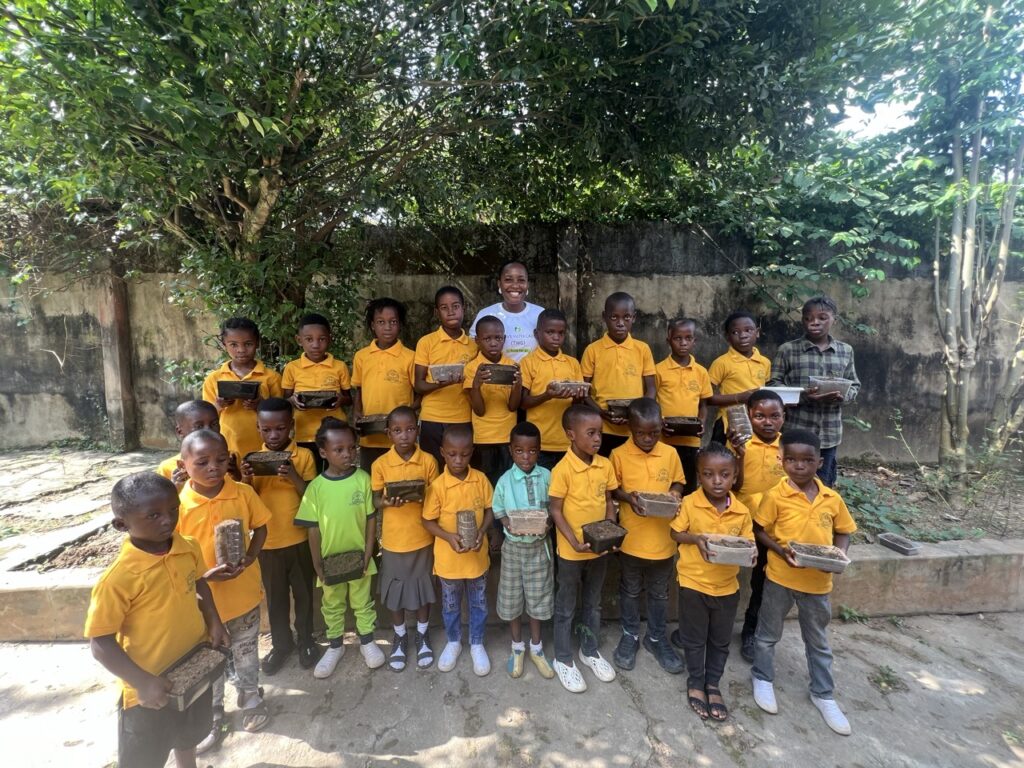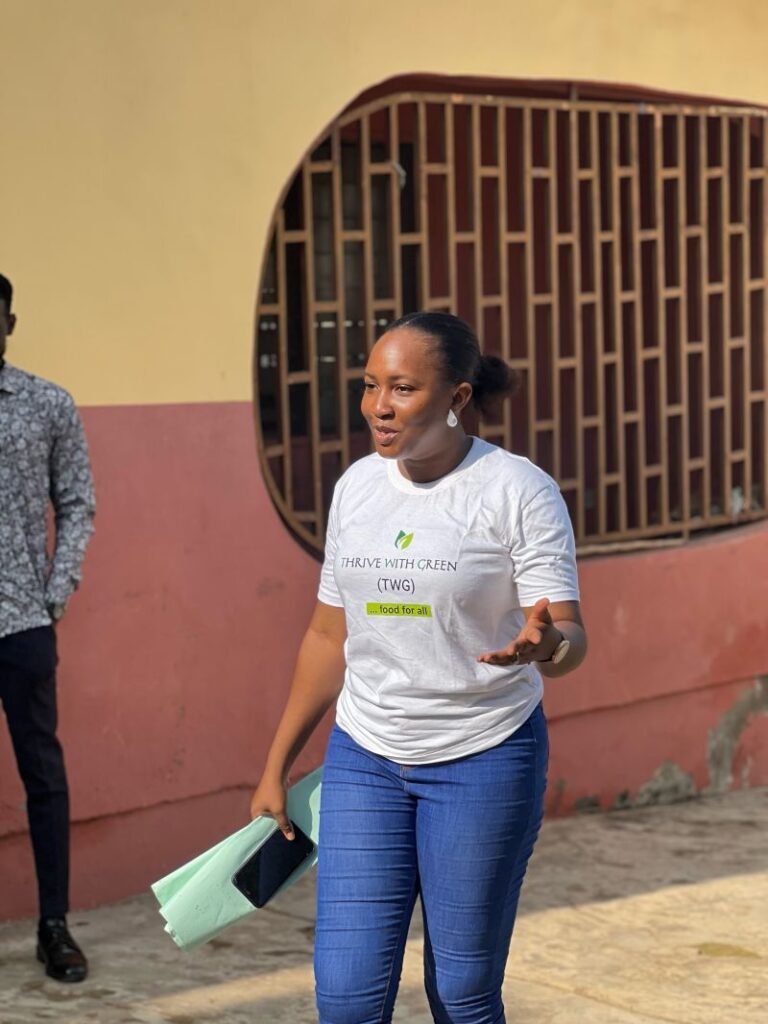Planting Seeds of Change: Empowering Families Through Thrive With Green
When I was younger, I shared a transformative experience with my mother. One evening, as we prepared to have yam for dinner, she set aside part of the yam to plant in a sack. A few months later, to my amazement, we harvested a large, fresh, and incredibly delicious tuber of yam. That moment sparked a question in my mind: Why couldn’t other families do the same? This simple act of planting and harvesting inspired me to take action, and that was the beginning of my journey with Thrive With Green.
Food insecurity is a pressing issue in Nigeria, one that has only grown more critical over the years. Despite the tireless efforts of our local farmers, the demand for food far outpaces the supply, leaving many families vulnerable to hunger and malnutrition. I believe that addressing food insecurity requires more than large-scale agricultural solutions; it also calls for empowering individuals and families to grow their own food. This belief drives the mission of Thrive With Green: ensuring everyone has access to good-quality food that they can grow themselves.
At Thrive With Green, we focus on equipping families, schools, and communities with the knowledge and resources needed to start their own gardens. By fostering a culture of homegrown food production, we aim to reduce dependence on expensive or unavailable market produce while promoting healthier, sustainable eating habits.
One of our most ambitious initiatives to date is the School Garden Project. Launched recently, this project seeks to reach 1,000 schools by 2027, with a vision of positively impacting at least one million people. Through the program, we provide hands-on gardening training to students and teachers, equipping them with the skills to cultivate and maintain gardens within their school premises. The impact of these gardens extends beyond the school environment; they inspire families to adopt similar practices at home, multiplying the reach of our efforts.

The School Garden Project is not just about growing food—it’s about planting seeds of empowerment, resilience, and hope. By teaching children the value of self-reliance and sustainability, we’re nurturing a generation that understands the importance of food security and has the tools to address it. Already, we’ve seen remarkable enthusiasm from schools participating in the program, with students taking pride in their gardens and sharing their newfound knowledge with their families and communities.
What motivates me to continue this work is the potential to create a ripple effect of positive change. The sight of families harvesting their own fresh produce, the joy of children learning to nurture a plant from seed to fruit, and the collective progress toward a more food-secure society fuel my passion for Thrive With Green. I am driven by the vision of a Nigeria where every family has access to fresh, nutritious food—not as a luxury, but as a fundamental right.
My commitment to this cause is rooted in my own experience. That simple act of planting a yam with my mother taught me that small actions can lead to significant change. It showed me the power of starting with what you have, where you are. This lesson continues to guide me, reminding me that even in the face of challenges, growth is always possible.

Through Thrive With Green and the School Garden Project, I’ve had the privilege of turning a childhood realization into a mission that impacts lives. The journey is far from over, but every garden planted, every harvest celebrated, and every family empowered brings us closer to a future where no one goes to bed hungry. And that is a future worth striving for.

